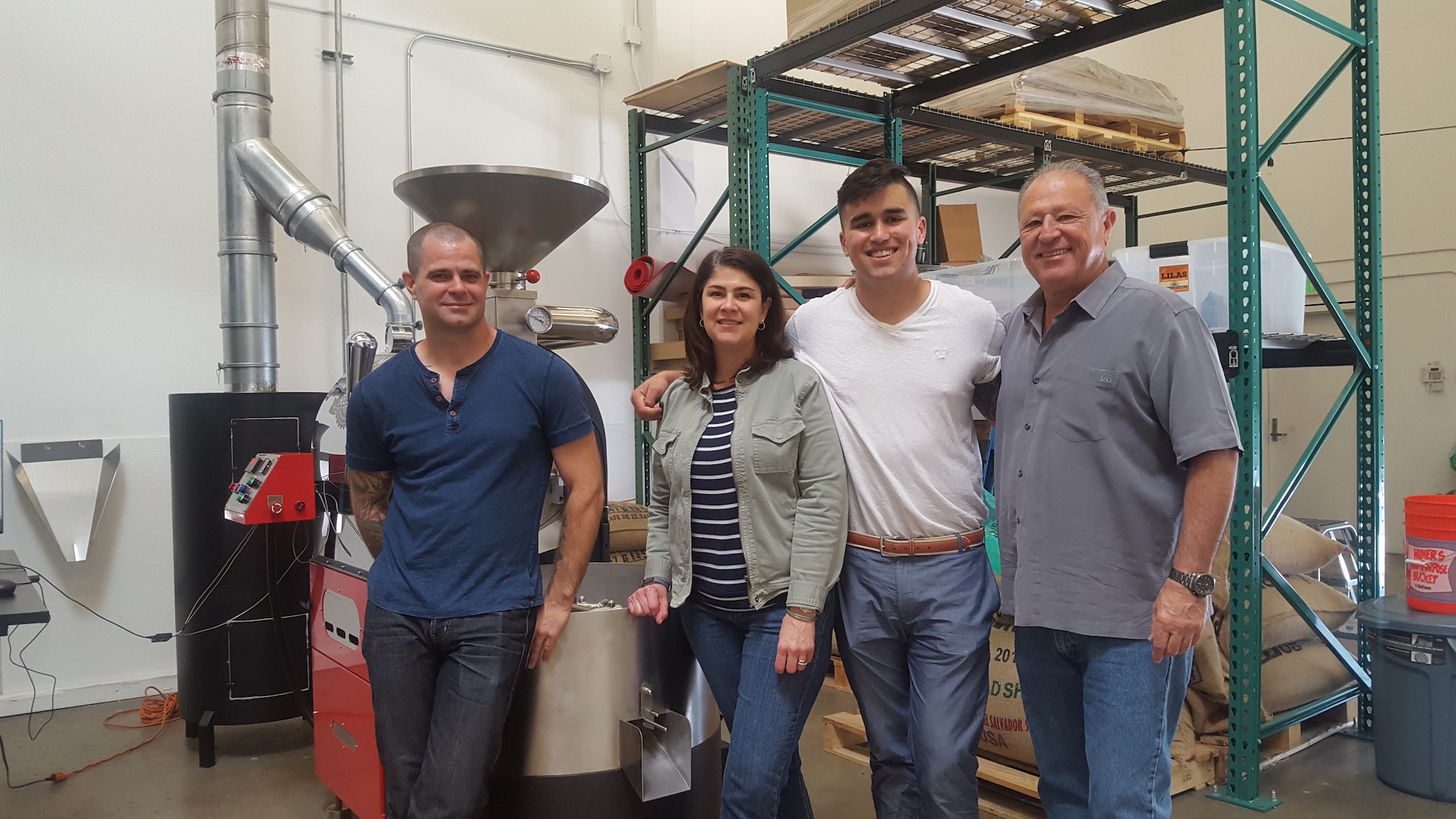[dropcap size=big]L[/dropcap]as Lilas is an upstart coffee operation in Inglewood founded in 2017 that is forging a unique niche for itself in small-batch cultivation: an entirely integrated and family-run company that has been growing coffee for 150 years. And most important, the beans are exclusively from a single farm in El Salvador.
The other day I dropped in for a by-appointment coffee tasting, or “cupping,” at Las Lilas. Their roasting operation sits in an industrial park not far from the runways at LAX. The roaster is part of a percolating scene of single-source Salvadoran coffee makers in Southern California, a novelty in a place far more familiar with coffees from other countries.
“Coffees from El Salvador are mostly thought of as blender coffees,” said Las Lilas founder George Poppe, referring to the process of blending beans from various sources for mass distribution. “But we’re actually growing it and processing it, shipping it. We’re 100 percent integrated, and not too many coffee companies out there are actually doing that at all, whether it be from Costa Rica, Colombia, Guatemala.”
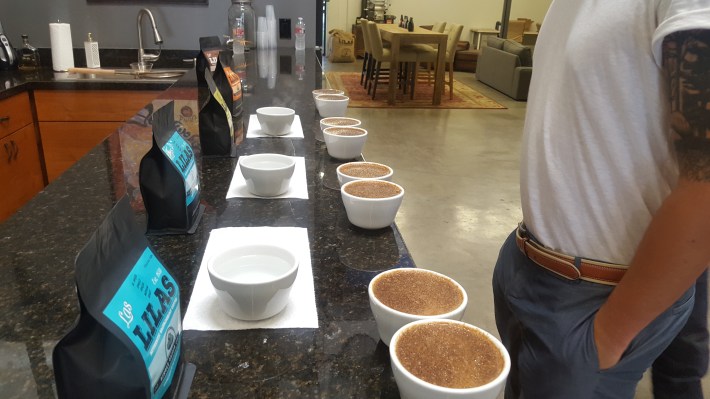
El Salvador, as writer and L.A. Taco contributor Karla Vasquez has pointed out in this space, is not nearly as well known as some of its neighbors for its single-source arabica coffee industry. Guatemala, Colombia, Costa Rica, and the southern states of Mexico are far more ahead in production and brand recognition as continental coffee powerhouses.
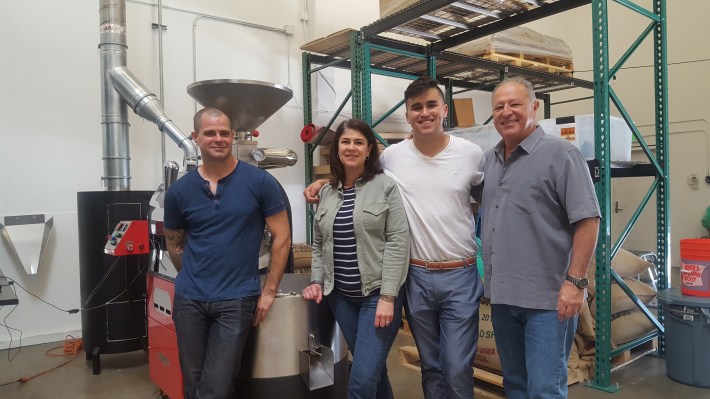
The hope of Poppe’s relatively small operation is that they along with a growing scene of Salvadoran coffee growers in the Los Angeles area will spread a fondness for the nation’s beans to mainstream consumers.
When I arrived at Las Lilas, Rebecca Poppe, who heads the company and is married to George, greeted me at a front office with inviting furniture and artwork. But my eyes were drawn to a huge sunlit garage in the rear, where massive coffee-roasting machinery churned alongside piles of burlap sacks containing the imported beans — giving a hint of that familiar acidic, grassy smell of pre-roasted coffee.
The beans are from the San Miguel region of eastern El Salvador, grown at a high elevation of 4,800 feet. The Poppes are directly tied to them. George is great-great-great-grandson of the Borjes Mena family of coffee farmers. The family has operated the business, unbroken, for generations. This is a feat, considering the volatility of El Salvador’s coffee industry in recent years.
In 2012, coffee rust hit the country’s crop, nearly crippling growers.
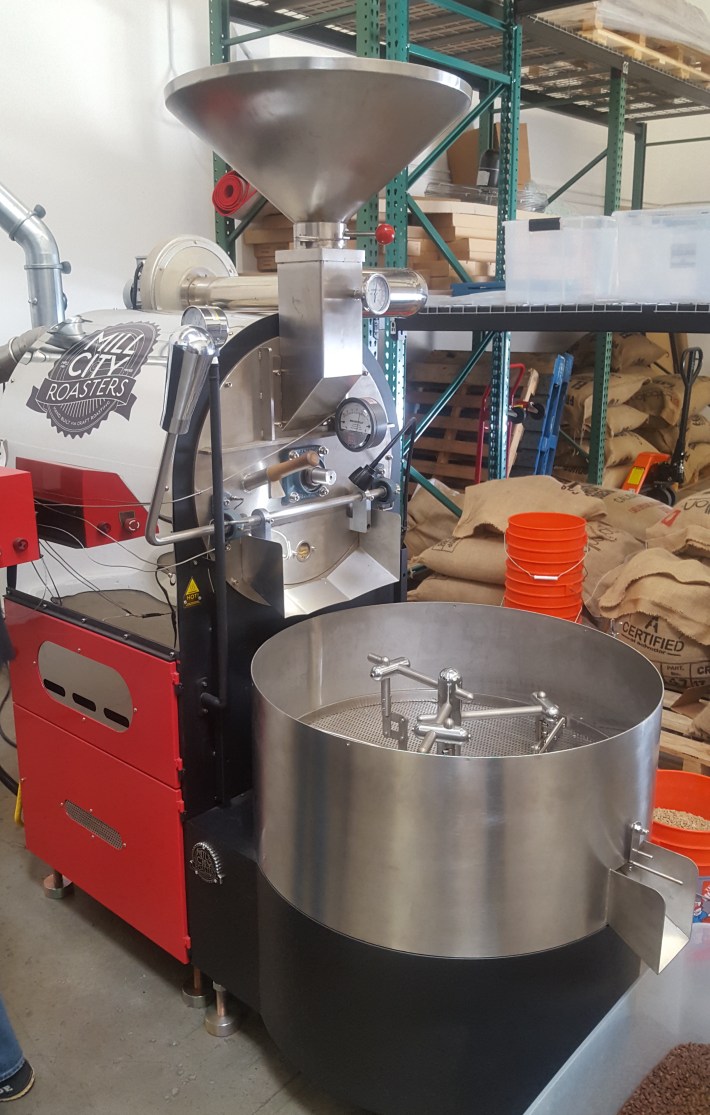
[dropcap size=big]B[/dropcap]uilding Las Lilas and keeping it in the family hasn’t been easy, George said. “Coffee gets touched four or five times, and every time someone touches it, it adds 10 to 15 percent to the price [per unit],” he explained.
George was born in San Salvador in 1959, and his family moved to Cleveland when he was two, then to Los Angeles when he was five, where he's lived ever since. Poppe had a long career in freight forwarding before entering his family’s coffee business.
He teamed up with an expert roaster, Chris Owens, a veteran of Handsome Coffee Roasters in Los Angeles.
“For me, Salvadoran coffees are the most balanced coffee options, you can sit with them all day, they’re super comfortable,” Owens said. “Don’t get me wrong. I love a fancy, bright acidic Kenya blend, super interesting, but I don’t necessarily want to sit with that all day while I’m reading the newspaper or whatever.”
Owens added, “With the Salvadoran coffee you get balanced, sweet, approachable coffee.”
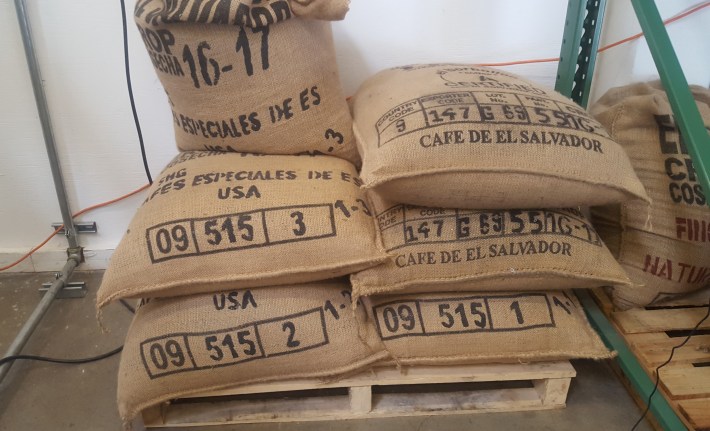
Upon tasting, it becomes clear Las Lilas is inspired by the practices of high-end contemporary coffeemakers. Don't expect Las Lilas coffees to remind you of the bitter punch in the mouth known among other Latin-favorite brands like Bustelo or Don Francisco. The flavor of Las Lilas is much more subtle. The company makes medium, dark, espresso, and morning blend roasts. I enjoyed the tangy wash of the dark roast.
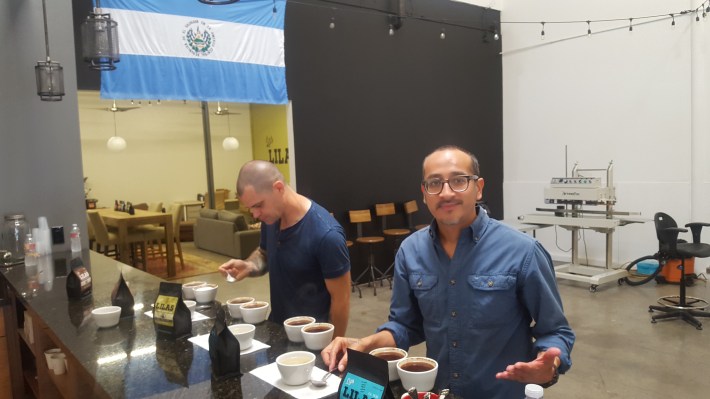
At the cupping, a proud blue-and-white flag of the Republic of El Salvador hangs over the roasting garage, reminding any visitor that despite the barrage of awful headlines linked to the Central American nation, it remains a robust, complicated country and economy that participates in the global market like all of its neighbors.
The crew at Las Lilas frequently travel to the family coffee farm in San Miguel to check on crops. George and Rebecca's son, Ashton Saltz, is an L.A. native. He helps out with the fledgling company as sales manager. “Lila is my grandmother,” he said with a smile.
RELATED: Rare Beans: Where to Find Single-Source Salvadoran Coffee in Los Angeles
You can also check an article on coffee roasters here.
Las Lilas is located at 8939 Sepulveda Boulevard, Suite 110. Call 310-416-9101 to schedule a visit. Also available online.
